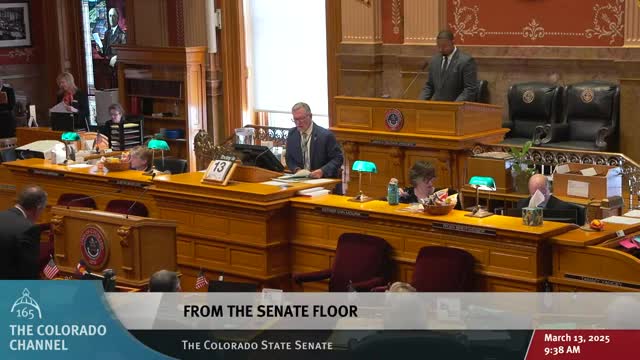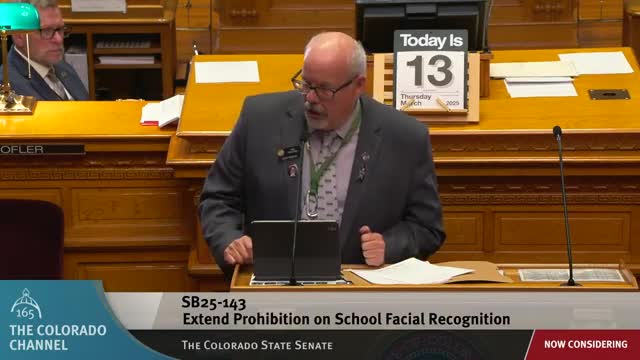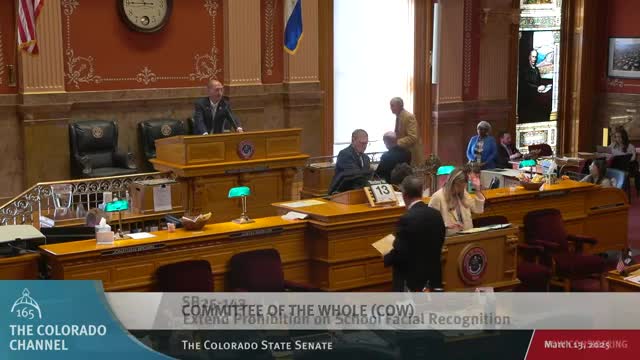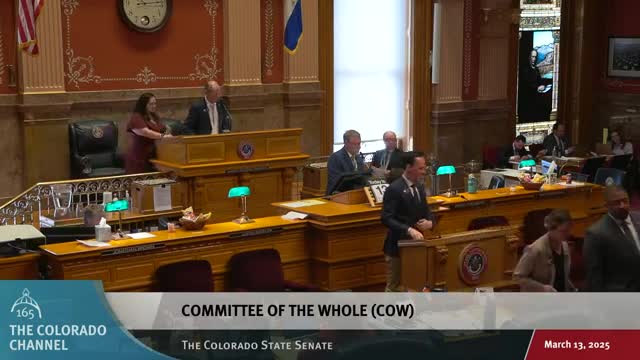Article not found
This article is no longer available. But don't worry—we've gathered other articles that discuss the same topic.

Senate passes measure to suspend legislative interim activities and reduce associated appropriation

Senate approves cleanup bill aligning disease‑control statutes and immunization guidance

Senate adopts transparency measure for student‑athlete name, image and likeness reporting with privacy carveouts

Senate passes bill regulating school use of facial recognition with parental consent and enforcement carve-outs

Senate approves bill adding nuclear to clean-energy statute amid broad debate

